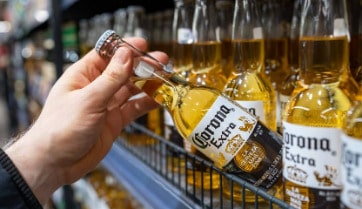J.P. Morgan is trialing biometric payments powered by PopID‘s commercial identification with more retailers in the U.S. ahead of a planned rollout next year, an executive told Payments Dive. The pilots include palm, fingerprint, and face authentication for payments in-store, promising a faster, secure checkout experience.
The Formula 1 Crypto.com Miami Grand Prix was among the first to pilot the system, which J.P. Morgan said when it was announced would make it the first Formula 1 race to use biometric payments.
If the pilots continue to be successful, the biometric payment system will be rolled out to merchants throughout the nation later this year. The company is pitching the system to quick-service restaurants, event venues, convenience and grocery stores, though it will be made available to all.
After they enroll and save a payment method, a customer can use their face, fingerprint, or palm scan to complete their checkout at a cashier’s checkout counter or self-service terminal. Merchants can benefit from increased sales and customer loyalty, while customers will have a device-free, secure, frictionless checkout experience, the announcement says.
The biometric payment system is a part of J.P. Morgan Payments’ Commerce Solutions suite of payment infrastructure and apps for consumer and B2B payments. This includes cloud infrastructure for payments APIs.
J.P. Morgan Payments sees digital commerce evolving towards a full-stack omnichannel service, offering in-store, online, and mobile checkout, according to Digital Transactions.
By leveraging transaction history with a payment processor and loyalty or marketing providers into one service, customers can have a simplified, personalized experience regardless of how they choose to shop. Merchants can see their transaction and marketing data into a single access point.
J.P. Morgan notes in the announcement that Goode Intelligence forecasts that biometric payments will reach 3 billion users and $5.8 trillion in value globally by 2026.
The company says it will enact best practices around privacy, consent, transparency and data minimization. “There is a perceived sensitivity towards biometrics,” says Prashant Sharma, executive director of biometrics and identity solutions at J.P. Morgan, in an interview with Payments Dive. “We feel that it is also our job to continue to create that confidence.”
Marchants can buy tablets from J.P. Morgan Payments or use their own devices. They must also pay a recurring fee for support as well as transaction and processing fees.
The service was previously piloted with Aramark, a food service provider in Texas. In 2022, J.P. Morgan Payments completed 35.83 billion transactions worth $2.03 trillion, according to a recent issue of Nilson Report.
J.P. Morgan is hardly the only payments processor actively exploring biometrics for in-person purchases: Visa is showing off its pay-by-palm biometric technology at its Singapore Innovation Center, and expects biometric payments to become more mainstream within the next decade. Mastercard has integrated face biometrics from NEC for retail biometrics deployments.
Article: J.P. Morgan plans biometric payments rollout with PopID in 2025
